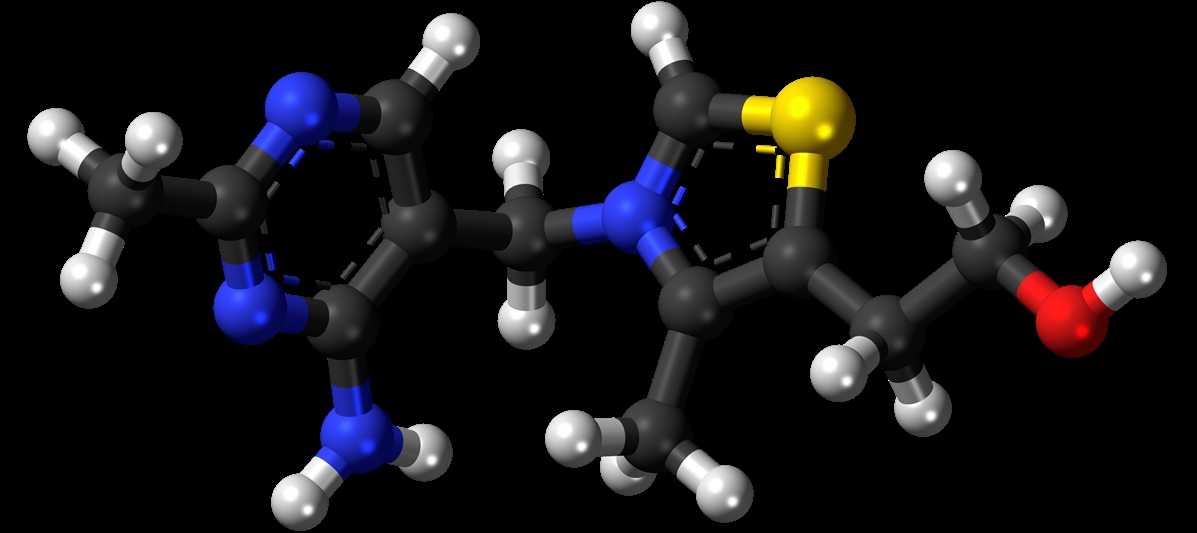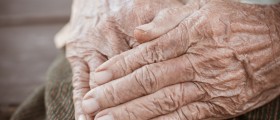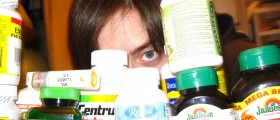About Beriberi
Beriberi is a disease also known as thiamine deficiency or vitamin B1 deficiency. Just like the name suggests, it is caused by abnormally low levels of vitamin B1 or thiamine.
There are two main types of beriberi - dry and wet beriberi. Wet beriberi affects the cardiovascular system, while the dry beriberi and Wernicke-Korsakoff syndrome affect the nervous system.
There is also genetic beriberi, which is passed down through families, in which the body is genetically unable to absorb thiamine properly.
Beriberi is today rare in the developed world, because most of the foods are vitamin-enriched and because a reasonably healthy diet provides enough thiamine for the body. However, beriberi can occur due to a number of factors, among which the most common one is malnutrition, diseases causing absorption problems, and heavy drinking.
Beriberi is treated with thiamine supplements, which in severe cases may have to be administered intravenously.
- Thiamine is a cofactor necessary for normal glucose and substrate metabolism, which involves enzymes such as transketolase in erythrocytes and pyruvate dehydrogenase and ?-ketoglutarate dehydrogenase in mitochondria.
- Thiamine deficiency causes edema, breathlessness, muscle weakness, and a sheep-like pattern of gait, known as beriberi. One of the earliest written descriptions of beriberi appears in the ancient Chinese medical treatise, the Huangdi Neijing (Yellow Emperor’s Inner Canon), compiled between the fifth and third centuries BCE.
- The chemical structure of thiamine was elucidated in 1934, and thiamine was synthesized in the laboratory by Robert Runnels Williams’s group in 1935. Different forms of beriberi include neuropsychiatric or Wernicke encephalopathy–Korsakoff syndrome (Wernicke-Korsakoff syndrome), wet beriberi, dry beriberi, gastrointestinal beriberi, fulminant or Shoshin beriberi, and subtypes of infantile beriberi.
- In their series of 17 gastrectomy patients with postsurgical thiamine-deficiency polyneuropathy, Koike et al. reported the initial symptoms to be limb weakness or burning paresthesia in the feet. Symptoms progressed over an interval of 3?days to 8?years. Most patients (9 of 17) progressed to loss of ambulation within 1?month of the start of symptoms.
- Thiamine deficiency may result from inadequate dietary intake, administration of total parenteral nutrition without adequate vitamin replacement, impaired intestinal absorption, small intestinal bacterial overgrowth, genetic metabolic diseases, increased losses of thiamine or increased physiological requirements, or consumption of antithiamine factors, antacids, sulfites, or sodium bicarbonate food preservatives.
- The early recognition and rapid administration of parenteral thiamine in suspected beriberi is crucial to prevent progression from Wernicke encephalopathy to Wernicke-Korsakoff syndrome and to minimize permanent neurological damage. Only 16% to 54% of patients with Wernicke encephalopathy present with all 3 features of the classic triad (ataxia, altered mental state, nystagmus/ophthalmoplegia).
- Thiamine replacement therapy in individuals at risk should not be delayed while waiting for the results of blood TPP assays to become available. Guidelines for treatment of patients with acute beriberi presentations include 500?mg of intravenous thiamine, 3 times daily for 3 to 5?days, followed by intravenous thiamine, 250?mg/d for 3 to 5?days or until the symptoms disappear, and then further treatment with oral thiamine, 100?mg/d. Because multiple vitamin deficiencies coexist in acute beriberi, other B group vitamins should also be administered (50?mg vitamin B6 IV, 4?mg riboflavin IV, 150?mg niacin IV; 3 times daily) along with vitamin?C (500?mg/d IV), for 3?days, followed by oral supplementation.
- The Recommended Dietary Intake (RDI) of oral thiamine for men and women is 1.2 mg and 1.1?mg, respectively, and the daily Estimated Average Requirement (EAR) is 1.0 mg and 0.9?mg, respectively.
Symptoms of Beriberi
As there are two types of beriberi, they have different symptoms. The symptoms of dry beriberi include difficulty walking, loss of feeling in hands and feet, decreased muscle function or paralysis in the lower extremities, confusion, difficulty speaking, pain, tingling sensation, vomiting, and strange eye movement.
Wet beriberi causes waking up at night due to shortness of breath, rapid heart rate, shortness of breath due to physical activity, and swelling of feet, ankles, and calves.
People who have beriberi may show signs of congestive heart failure, such as an enlarged heart, edema, protruding veins on the neck, and fluid in the lungs.
Prevention of Beriberi
Naturally, the prevention of beriberi consists of providing sufficient amounts of thiamine, through diet and vitamin supplements. Thiamine or vitamin B1 can be found as an individual supplement or as a part of the B complex vitamin supplement. Doctors usually recommend taking other vitamin supplements along with thiamine.
However, it is much better to take the vitamins the natural way, through diet. Thiamine can be found in small amounts in many food sources. Yeast, yeast extract, and their products, such as Marmite or Vegemite, as well as pork meat, are considered to be the best natural sources of thiamine.
This vitamin is also found in cereals, particularly in whole grain ones, much more than in refined ones. Other food sources include flaxseed, oatmeal, sunflower seeds, brown rice, asparagus, potatoes, kale, cauliflower, oranges, eggs, beef, pork, and chicken liver.
People who have recently been ill, who exercise vigorously or strain the body in any way, as well as those who drink heavily, are advised to increase their intake of thiamine-rich foods and to consider taking thiamine or B complex supplements.


















Your thoughts on this
Loading...